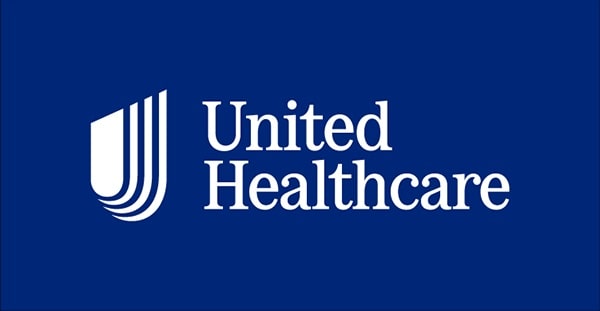Healthcare is one of the most important and biggest necessities that we all need. And that’s why it is no surprise to see this healthcare field or sector growing every single year at a rapid pace. One example we saw was when the COVID thing hit us back in 2020, right? Well, you see, as an investor, the growth of the healthcare field might be a good thing for you, especially if you are a bit opportunistic. And yeah, we know, at this point you might already be wondering about what companies are in the health care field, correct? Well, that’s why today we are gonna take a good look at the top 10 companies in the healthcare field for 2024, so if you are looking forward to putting your hard-earned money in the healthcare sector, then you should most likely be investing in these companies for the best and stead ROI. Right? So yeah, let’s end this intro thing here and get to the actual list, ready? Here we go.
1. UnitedHealth

- Market Cap: $486.95 billion
Can you believe it? UnitedHealth Group, worth nearly $487 billion, started out small but hit it big over the last 40 years. They’re the jack-of-all-trades in healthcare: health plans, wellness stuff, plus tech health services via Optum. They’re a massive deal in the US healthcare scene because they’re crazy innovative, boast a huge network, and are dead set on improving the health system for everyone. They’re tackling health challenges left and right with tech and data. Just recently, they made waves by offloading their Brazilian biz to some loaded investors. It’s a slick strategy to sharpen their worldwide approach, even if it’s gonna cost them about $7 billion due to some tricky currency issues.
2. Elevance Health
- Market Cap: $110.12 billion
Elevance Health, formerly Anthem, is a heavyweight in the American healthcare sector, valued at a whopping $110.12 billion. They kicked off in 2004 when Anthem and WellPoint Health Networks joined forces. Hailing from Indianapolis, Indiana, they’ve expanded into a healthcare and insurance titan. They’ve got it all, medical, pharma, dental, mental health, long-term care, and disability plans. They’re the top player in the Blue Cross Blue Shield Association, with a massive 46.8 million members in 2022. They offer a whole range of services, some really cool healthcare ideas, and a focus on value for money. They’re not just about patching you up; they’re about keeping you healthy round the clock.
3. CVS Health Corp
- Market Cap: $101.61 billion
CVS Health, a giant in healthcare, valued at an impressive $101.61 billion, has been around since 1963. They started as a health and beauty store, but now? They’re big on health care benefits, pharmacy services, retail, and more. Their aim? To make health care accessible and affordable. They run pharmacies, retail outlets, and even digital services. After scooping up Aetna, a major insurance player, and recently acquiring Signify Health and Oak Street Health, they’re expanding like crazy. And yeah, lately, CVS Health’s sales are through the roof, and they’re all about upgrading your healthcare experience. Sure, they’ve got rivals and the economy can be a pain, but the future’s looking bright with more health services and a slicker customer experience.
4. Cigna
- Market Cap: $87.63 billion
So, Cigna’s got a massive value of $87.63 billion, that’s huge in the healthcare world, right? They’ve been on this ride since 1982, all thanks to INA Corporation and Connecticut General Corporation teaming up. Now, they’re a big-time global health service player, doing a bit of everything, think medical and dental insurance, plus life and accident coverage. Big on new tech, focusing on their customers, and spreading their wings worldwide, they’re pretty much aiming to be the kings of healthcare. Recently, they’ve been talking with WakeMed Health and Hospitals, and this convo might shake up if WakeMed’s gonna take Cigna insurance in 2024. Oh, and there was some buzz about Cigna and Humana maybe joining forces, but that’s off the table now.
5. HCA Healthcare
- Market Cap: $72.45 billion
Next in line, we’ve got HCA Healthcare, a $72.45 billion healthcare titan! Back in 1968, Dr. Thomas F. Frist Sr., his son, and Jack C. Massey kicked it off in Nashville, Tennessee. Their big idea? Link up hospitals for top-quality patient care and boost medicine with team spirit. Fast forward to today, and HCA Healthcare is managing a whopping 186 hospitals, plus over 2,000 spots like surgery centers and clinics across 21 states and the UK. They’ve grown huge, thanks to some smart acquisitions and growing like crazy, ranking as one of the world’s biggest for-profit healthcare bosses.
6. McKesson
- Market Cap: $61.61 billion
Now, let’s talk about McKesson Corporation, sitting pretty with a market value of $61.61 billion. It all started way back in 1833 when John McKesson and Charles Olcott opened shop in New York City. They began with botanical drugs, but fast-forward to now, and McKesson’s a major global player in healthcare, handling a third of North American pharmaceuticals. They’re into everything like distributing meds and medical tech, health info tech, and some awesome care management tools. They’re known for their vast healthcare network and diving into high-tech stuff like barcode scanning, pharmacy robots, and RFID tags. And yeah, can’t forget their hero role during COVID-19, being the main distributor for those crucial vaccine doses.
7. Cencora
- Market Cap: $41.25 Billion
Alright, let’s talk about Cencora Inc. This company, rising from what once was AmerisourceBergen, is a major player in the healthcare scene, especially in the pharma world. They’ve taken everything AmerisourceBergen was known for and repackaged it into something called Cencora. And now, they’re offering a whole bunch of healthcare services. We’re talking everything from managing supply chains, doing wholesale distribution, to getting involved in clinical trials, gene therapy, and biosimilars, and a lot more. Cencora’s big mission? To make healthcare reachable for everyone, humans and animals alike, using their global presence and some pretty impressive tools.
8. Centene
- Market Cap: $39.64 billion
Now, let’s chat about Centene Corporation, a heavyweight in healthcare, boasting a market cap of a staggering $39.64 billion! This journey started way back in 1984 with Elizabeth “Betty” Brinn setting up Managed Health Services in Milwaukee, Wisconsin. Fast forward to now, and what do you find? Centene, rooted in St. Louis, Missouri, has become a healthcare giant. These folks have got their hands in every pot in the healthcare and insurance industry. We’re talking Medicaid, ACA health insurance marketplace, Medicare, Tricare, and even healthcare for the incarcerated. Their goal? Making sure everyone gets the healthcare they deserve. Centene is renowned for their top-notch role in healthcare, always pushing for innovation and quality. They’re the ones making sure you get only the best in healthcare. And they’re not just talking the talk; they’ve got the accolades to back it up! They’ve made it onto Fortune’s 2023 list of the World’s Most Admired Companies and are sitting pretty at No. 25 on the Fortune 500 list of big-time U.S. companies by revenue.
9. Cardinal Health
- Market Cap: $24.84 billion
Way back in 1971, they kicked off as Cardinal Foods, a food wholesaler. But, in 1979, they had this lightbulb moment and pivoted to pharma distribution by snapping up Bailey Drug Company. Fast-forward to 1983, and bam, they’re on NASDAQ. Now, they’re sitting pretty as the 14th biggest in revenue in the U.S. These guys are based out of Dublin, Ohio, and they’re knee-deep in the healthcare supply game. They’re the ones everybody calls for pharma stuff and medical gear, catering to a whopping 100,000 places. What’s really cool about Cardinal Health? Their gigantic distribution network, their wide array of med and pharma products, and their commitment to keeping the healthcare supply chain on point. That’s what.
10. Molina Healthcare
- Market Cap: $21.06 billion
Alright, Molina Healthcare, with a hefty $21.06 billion market cap, they’re big in the healthcare league, mainly handling health insurance through government gigs like Medicaid and Medicare. They’re all about delivering first-rate healthcare to people under these government plans, making sure everyone’s covered. Here’s the latest scoop: Molina Healthcare is snagging Bright Health Group’s Medicare Advantage biz. Originally, the price tag was $600 million, but now they’ve coolly dialed it down to a smooth $500 million. They managed to haggle down the price, keeping up with market trends and Bright Health Group’s budget. This move? It’s slick and shows Molina Healthcare’s savvy strategy to keep climbing the ranks in the healthcare industry!
Conclusion
That’ll do it. Now you know which major names you should invest in when it comes to the healthcare scene in the country, right? But yeah, these are just the top ones, there certainly are some top-performing ones as well, you might wanna look into those as well.
Health Care Field Companies FAQs
Q. What are the different types of healthcare companies?
Ans: Healthcare companies can include pharmaceutical companies, biotechnology firms, medical device manufacturers, healthcare service providers (such as hospitals, clinics, and nursing homes), health insurance companies, and healthcare IT companies.
Q. How do healthcare companies develop new drugs or treatments?
Ans: Healthcare companies typically invest heavily in research and development (R&D). This process involves identifying potential targets for drugs or therapies, conducting preclinical studies, and then progressing to clinical trials to test the safety and efficacy of the treatments in humans.
Q. What are some of the biggest challenges facing healthcare companies today?
Ans: Healthcare companies face challenges such as stringent regulatory requirements, pricing pressures, competition, cybersecurity threats (especially for healthcare IT companies), and the need to constantly innovate to stay ahead in the market.
Q. How do healthcare companies ensure the safety and quality of their products or services?
Ans: Healthcare companies are subject to strict regulations and quality standards imposed by regulatory bodies such as the FDA (Food and Drug Administration) in the United States and the EMA (European Medicines Agency) in Europe. They conduct rigorous testing and adhere to Good Manufacturing Practices (GMP) to ensure the safety, efficacy, and quality of their products or services.
Q. What are some trends shaping the healthcare industry?
Ans: Some trends shaping the healthcare industry include the increasing adoption of telemedicine and digital health technologies, personalized medicine, value-based care models, artificial intelligence and machine learning in healthcare analytics, and the growing importance of data security and interoperability.
Q. How do healthcare companies address issues of accessibility and affordability?
Ans: Healthcare companies may offer patient assistance programs, discounts, or subsidies for patients who cannot afford their medications or treatments. They may also engage in partnerships with governments, NGOs, or international organizations to improve access to healthcare in underserved areas or populations.
Q. What role do healthcare companies play in addressing public health crises, such as pandemics?
Ans: Healthcare companies play a critical role in developing vaccines, therapeutics, and diagnostic tests to combat public health crises like pandemics. They collaborate with governments, research institutions, and international organizations to accelerate the development and distribution of essential medical interventions.

Meet Suhas Harshe, a financial advisor committed to assisting people and businesses in confidently understanding and managing the complexities of the financial world. Suhas has shared his knowledge on various topics like business, investment strategies, optimizing taxes, and promoting financial well-being through articles in InvestmentDose.com


